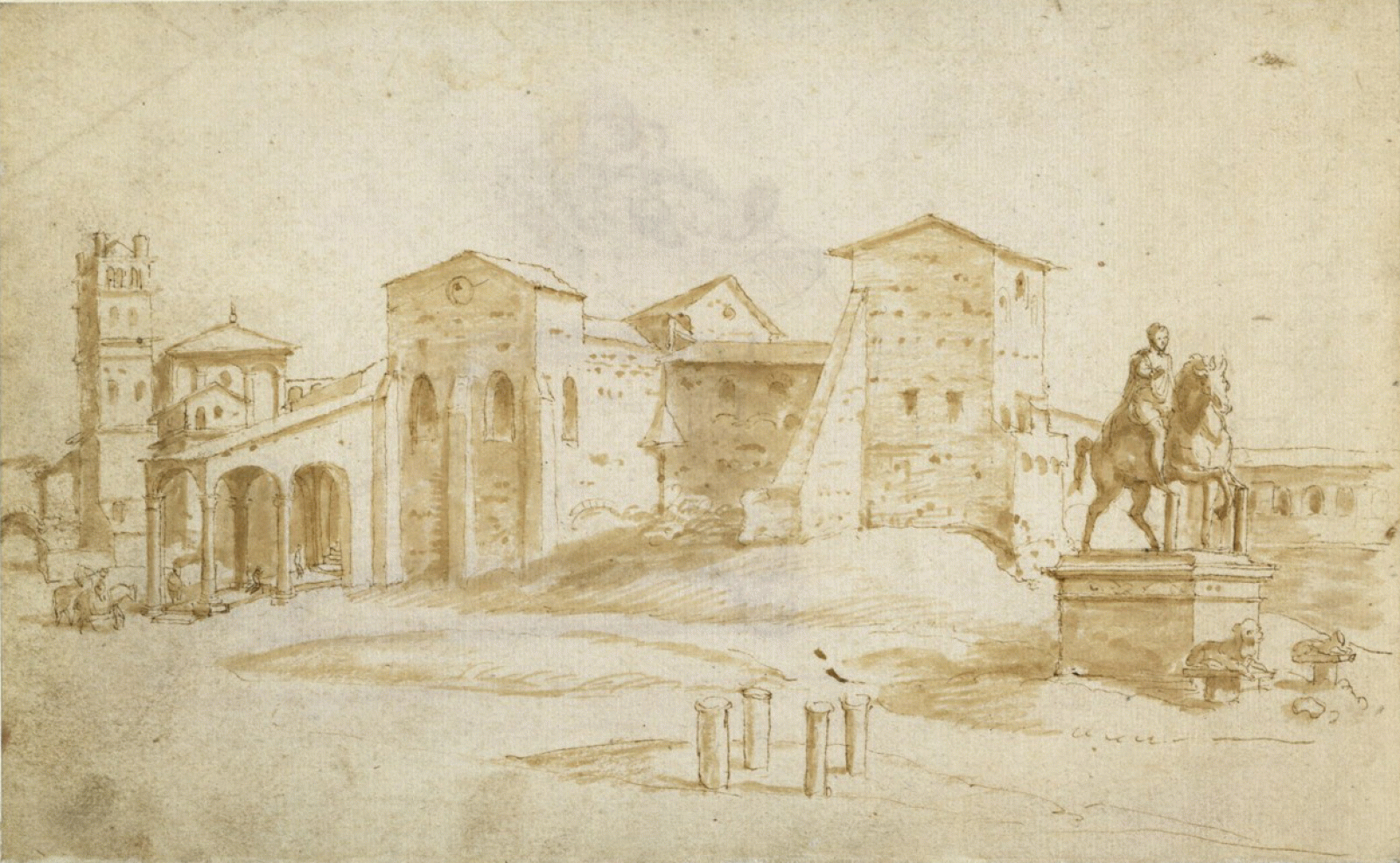Evening lecture
Bernhard Jussen: From Marcus Aurelius's Horse to the Sexuality of Christ. Conceiving European History 500-1500 after Euro-Centrism

Maarten van Heemskerck, View of the Lateran place with the Marcus Aurelius, 1532-1536/37. Staatliche Museen zu Berlin, Kupferstichkabinett
The firmly institutionalized model of historical interpretation "ancient - medieval - modern" is a child of the so-called secularization paradigm. It is the classic case of a Eurocentric corset, a clear candidate for a funeral in the history of science. The current work on new, post-eurocentric interpretations of European history thus concerns the foundational elements of historical thought, the categories in which European history can be thought of after the death of "Antiquity - Middle Ages - Modern Times".
The old macro-historical concept, developed for the needs of the 18th century intellectuals but still ubiquitous today, hardly draws on visual material such as images or sculptures. It draws on a very narrow selection of historical remains, essentially pragmatic and narrative text production. In order to observe the Eurocentric boundaries of the still ubiquitous macro-model and to search for alternatives, the presentation draws on material from art history for a re-interpretation of European history (6th to 16th centuries). Macro perspectives change considerably when historians base their macro models of European history on visual discourses. In doing so, visual remains that are usually discussed in very different books, come into context – such as equestrian statues and the image of Christ.
Bernhard Jussen is Professor of "Medieval History and its Perspectives in the Present" at Frankfurt University. Research fields: Historical Scholarship after Eurocentrism, Kinship in post-Roman Europe, Historical Semantics, The visual Formation of Modern Historical Narratives.
12 June 2019, 6:00pm
Kunsthistorisches Institut in Florenz – Max-Planck-Institut
Palazzo Grifoni Budini Gattai
Via dei Servi 51
50122 Firenze
Notice
This event will be documented photographically and/or recorded on video. Please let us know if you do not agree with the Kunsthistorisches Institut in Florenz using images in which you might be recognizable for event documentation and public relation purposes (e.g. social media).


